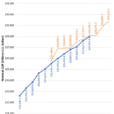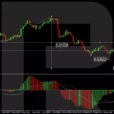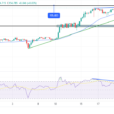Global stocks rebounded over most of the week as tensions surrounding trade and EM contagion abated. Investors welcomed Treasury Secretary Mnuchin’s invitation to host additional talks with China, as well as the Turkish central bank’s decision to sharply increase rates to support its ailing currency. However, the rally flatlined on Friday due to reports that Trump wants to move forward with $200 billion in tariffs on China, regardless of the new trade discussions.
Weekly Returns
S&P 500: 2,905 (+1.2%)
FTSE All-World ex-US (VEU): (+1.7%)
US 10 Year Treasury Yield: 3.00% (+0.06%)
Gold: $1,194 (-0.1%)
EUR/USD: $1.162 (+0.5%)
Major Events
Our Take
Following a relatively wild week, markets regained their footing and moved higher as global tensions eased. Probably the most important development was the Trump administration proposing another round of discussions with China. This was viewed positively by markets, particularly since the discussions would involve more high level representatives than the last round. And it was encouraging China accepted, which follows a similar pattern of softening rhetoric from Chinese government officials. In recent weeks, they’ve made a stronger effort to reassure U.S. companies they will not be the targets of retaliation from the trade war.












Leave A Comment